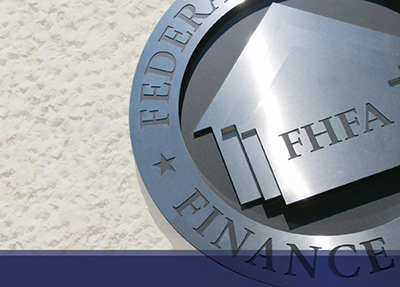
GSEs Reduce Upfront Fee for Commingled Securities; FHFA Updates GSEs’ Single-Family Pricing Framework

Fannie Mae and Freddie Mac announced a reduction in the upfront fee for commingled securities to 9.375 basis points, effective April 1; additionally, the Federal Housing Finance Agency announced updates to the government-sponsored enterprises’ single-family pricing framework, effective May 1.
Federal Housing Finance Agency Director Sandra Thompson said the reduction in commingled securities fees resulted from a months-long analysis and stakeholder engagement to consider a variety of views on the fee and its potential impacts on the Uniform Mortgage-Backed Security market.
“FHFA is dedicated to preserving the strength and resilience of the UMBS market, given the significant improvement in liquidity and stability that UMBS has afforded the To-Be-Announced market,” Thompson said in a statement. “To support these objectives, FHFA is committed to maintaining a durable framework that will enable commingling activity to resume in a way that addresses the concerns of all stakeholders to the greatest extent possible. As FHFA continues its review of the Enterprise Regulatory Capital Framework to ensure the ERCF appropriately reflects the risks of the Enterprises’ business activities including commingled securities, the Agency appreciates the constructive engagement with all market participants and is committed to ongoing dialogue on this issue.”
MBA President and CEO Bob Broeksmit, CMB, issued a statement following the announcement: “FHFA’s move to lower the fee significantly for commingled securities is a sound decision and should remove much of the friction observed in the UMBS market since the fee was implemented last summer. The UMBS is intended to increase liquidity in the market, but the high fee was having the opposite effect
“While MBA continues to believe that there should not be any fee for commingled securities, we appreciate FHFA’s receptiveness to industry feedback and its willingness to make an adjustment that better reflects any perceived risk. We remain focused on ensuring a well-functioning UMBS market and will continue to work with FHFA, the GSEs, and industry stakeholders on this issue.”
FHFA also on Thursday announced further changes to Fannie Mae’s and Freddie Mac’s single-family pricing framework by introducing redesigned and recalibrated upfront fee matrices for purchase, rate-term refinance and cash-out refinance loans.
“These changes to upfront fees will strengthen the safety and soundness of the Enterprises by enhancing their ability to improve their capital position over time,” Thompson said. “By locking in the upfront fee eliminations announced last October, FHFA is taking another step to ensure that the Enterprises advance their mission of facilitating equitable and sustainable access to homeownership.”
Broeksmit said MBA had concerns about the announcement. “FHFA’s holistic review of the GSEs’ up-front pricing framework has led to extensive reworking of the grids, and it will take some time to assess the full impact on borrowers and the market,” he said. “Our initial review indicates that the new framework results in a modest net increase in overall pricing, which is a concern given ongoing affordability challenges and the higher interest rate environment.”
Broeksmit noted with the peak homebuying season coinciding with these changes, FHFA should consider additional program changes to improve affordability, including raising the area median income threshold for the GSEs’ low down payment products. “This move would expand eligibility for borrowers who can meet the monthly obligation of a mortgage payment but do not have significant savings to make a large down payment,” he said. “We also urge FHFA to be flexible with its May 1, 2023, implementation date should the industry need more time to integrate these updates and the recalibration of the upfront fee matrix into mortgage pricing. MBA will continue to work with FHFA, the GSEs, and the Biden administration and advocate for policies and actions that expand homeownership opportunities for all qualified borrowers.”
FHFA said the priorities outlined in the 2022 and 2023 Scorecards for the Enterprises include developing a pricing framework to maintain support for single-family purchase borrowers limited by wealth or income, while also ensuring a level playing field for large and small sellers, fostering capital accumulation, and achieving commercially viable returns on capital.
The pricing changes broadly impact purchase and rate-term refinance loans and build on upfront fee changes announced by FHFA in January and October 2022, which have been integrated into the new grids. The new fee matrices consist of three base grids by loan purpose for purchase, rate-term refinance, and cash-out refinance loans—recalibrated to new credit score and loan-to-value ratio categories—along with associated loan attributes for each.
The updated fees will take effect for deliveries and acquisitions beginning May 1, to minimize the potential for market or pipeline disruption.
